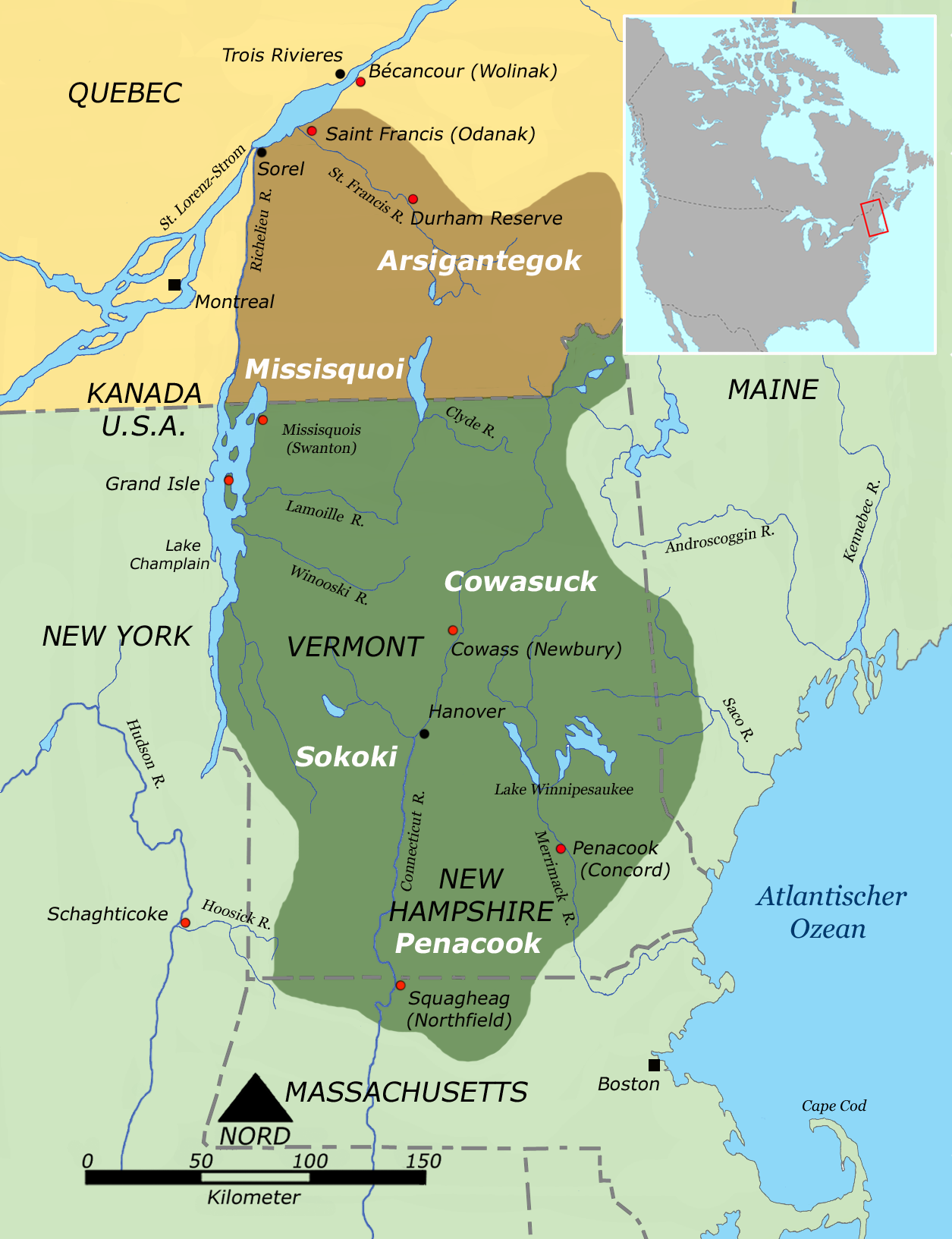|
Wabanaki Confederation
Wabanaki, Wabenaki, Wobanaki, etc. may refer to: * Wabanaki Confederacy, a confederation of five First Nations in North America ** Abenaki, one member Nation of the Wabanaki Confederacy * People who speak one of the Eastern Algonquian languages The Eastern Algonquian languages constitute a subgroup of the Algonquian languages. Prior to European contact, Eastern Algonquian consisted of at least 17 languages, whose speakers collectively occupied the Atlantic coast of North America and adj ... {{disambig Language and nationality disambiguation pages ... [...More Info...] [...Related Items...] OR: [Wikipedia] [Google] [Baidu] |
Wabanaki Confederacy
The Wabanaki Confederacy (''Wabenaki, Wobanaki'', translated to "People of the Dawn" or "Easterner") is a North American First Nations and Native American confederation of four principal Eastern Algonquian nations: the Miꞌkmaq, Maliseet (''Wolastoqey''), Passamaquoddy (''Peskotomahkati'') and Penobscot. The Western Abenaki are also considered members, being a loose identity for a number of allied tribal peoples such as the Sokoki, Cowasuck, Missiquoi, and Arsigantegok, among others. There were more tribes, along with many bands, that were once part of the Confederation. Native tribes such as the Norridgewock, Etchemin, Alemousiski, and Canibas, through massacres, tribal consolidation, and ethnic label shifting were absorbed into the five larger national identities. Members of the Wabanaki Confederacy, the Wabanaki, are located in and named for the area which they call ''Wabanakik'' ("Dawnland"), roughly the area that became the French colony of Acadia. It is made up ... [...More Info...] [...Related Items...] OR: [Wikipedia] [Google] [Baidu] |
Abenaki
The Abenaki (Abenaki: ''Wαpánahki'') are an Indigenous peoples of the Northeastern Woodlands of Canada and the United States. They are an Algonquian-speaking people and part of the Wabanaki Confederacy. The Eastern Abenaki language was predominantly spoken in Maine, while the Western Abenaki language was spoken in Quebec, Vermont, and New Hampshire. While Abenaki peoples have shared cultural traits, they did not historically have a centralized government. They came together as a post-contact community after their original tribes were decimated by colonization, disease, and warfare. Names The word ''Abenaki'' and its syncope, ''Abnaki,'' are both derived from ''Wabanaki'', or ''Wôbanakiak,'' meaning "People of the Dawn Land" in the Abenaki language. While the two terms are often confused, the Abenaki are one of several tribes in the Wabanaki Confederacy. The name is spelled several ways including Abnaki, Abinaki, and Alnôbak. ''Wôbanakiak'' is derived from ''wôban'' ( ... [...More Info...] [...Related Items...] OR: [Wikipedia] [Google] [Baidu] |
Eastern Algonquian Languages
The Eastern Algonquian languages constitute a subgroup of the Algonquian languages. Prior to European contact, Eastern Algonquian consisted of at least 17 languages, whose speakers collectively occupied the Atlantic coast of North America and adjacent inland areas, from what are now the Maritimes of Canada to North Carolina. The available information about individual languages varies widely. Some are known only from one or two documents containing words and phrases collected by missionaries, explorers or settlers, and some documents contain fragmentary evidence about more than one language or dialect. Many of the Eastern Algonquian languages were greatly affected by colonization and dispossession. Miꞌkmaq language, Miꞌkmaq and Malecite-Passamaquoddy language, Malecite-Passamaquoddy have appreciable numbers of speakers, but Western Abenaki language, Western Abenaki and Lenape (Delaware) are each reported to have fewer than 10 speakers after 2000. Eastern Algonquian constitutes ... [...More Info...] [...Related Items...] OR: [Wikipedia] [Google] [Baidu] |
.jpg)
